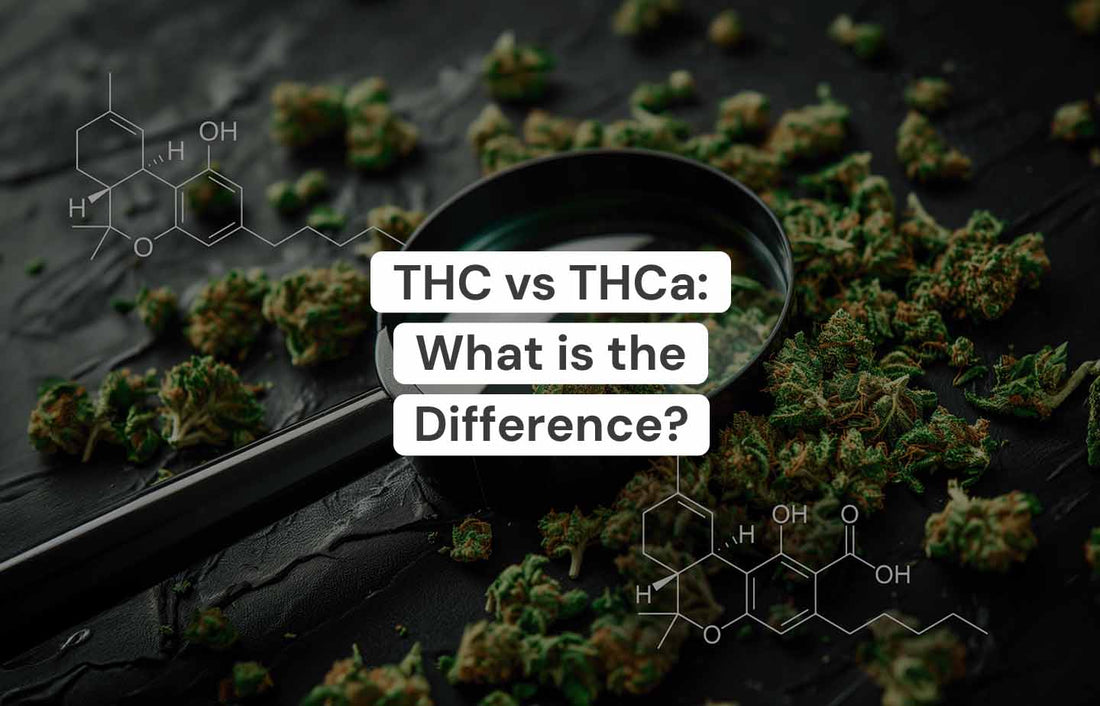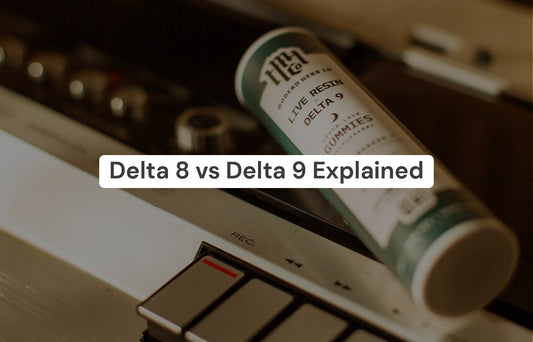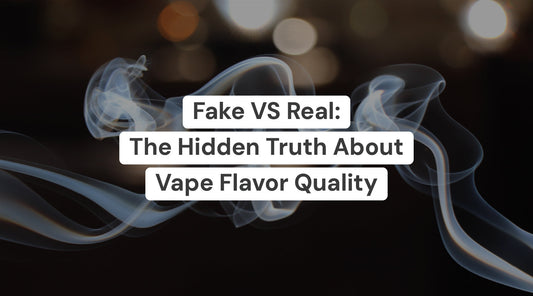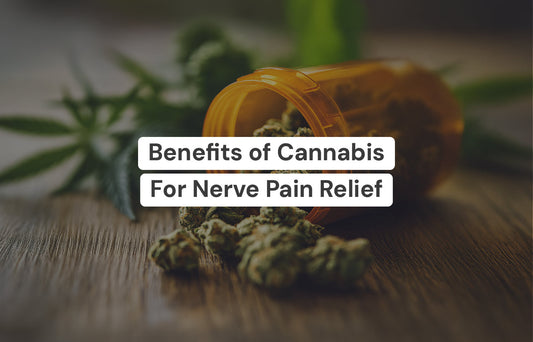
THC Vs. THCA: What Is The Difference?
Table of content
THCA Or THC?
THCa has emerged as the latest trending substance in regions where cannabis remains illegal. So, what exactly is THCa, and how are THC and THCa different from one another? Learn more about the effects, applications, and availability of this cannabinoid produced from hemp in this in-depth article. Additionally, we will draw parallels between it and its close relative, THC, the famous psychoactive ingredient found in cannabis. As we address the query, "What is the difference between THC Vs.THCa?" continue reading.
What Is THCA?
Let us get fundamentals first. Raw cannabis plants contain tetrahydrocannabinolic acid, or THCa, a non-euphoric cannabinoid. The sensation of being "high" commonly linked with cannabis is actually induced by Delta 9 THC, also known as THC, which serves as the primary psychoactive component in cannabis.
The process by which heat, such as that generated by smoking, vaping, or cooking cannabis, converts THCa into THC is known as decarboxylation. THCa that has been decarboxylated and converted to THC will get you high, just like cannabis.
The endocannabinoid system, a web of chemicals and receptors that controls mood, pain, appetite, memory, and other biological processes, is impacted by THCa. Research has indicated that THCa possesses numerous potential therapeutic advantages; however, further exploration into the cannabinoid's potential medical applications is necessary to validate its positive effects on health and well-being.
THCa has gained tremendous popularity recently because of its ability to be easily converted into THC. The legal status of the cannabinoid, which is derived from hemp, is also behind its growing acceptance. THCa is now federally legal from coast to coast thanks to the 2018 Farm Bill. Some states, however, have taken measures to regulate hemp-derived THCa and other cannabinoids, so check local regulations before you buy.
Check our blog at The Hemp Collect for more information on What Is THCa?
What Is THC?
Delta 9 tetrahydrocannabinol (THC), the main psychoactive compound in cannabis, is responsible for the euphoric effects experienced by users. THC originates from THCa, a non-intoxicating cannabinoid found in raw cannabis plants. THC is produced from THCa through processes like smoking, vaping, or cooking cannabis.
In various parts of the brain and spinal cord, THC binds to cannabinoid receptors, particularly CB1 receptors, and interacts with the endocannabinoid system. This modulates the release of neurotransmitters and causes various effects, such as euphoria, sedation, appetite, cognition, pain relief, and anxiety.
Cannabis with THC has been enjoyed recreationally for thousands of years. However, THC-containing cannabis is still prohibited in many states and at the federal level in the United States. In states that have legalized cannabis, THC is tightly regulated and only available from licensed medical and adult-use dispensaries.
THC also has potential therapeutic benefits for various conditions, such as neurodegenerative diseases, cancer, nausea, and inflammation. A pharmaceutical version of synthetic THC has been approved by the U.S. Food and Drug Administration (FDA) to treat anorexia and the nausea and vomiting associated with cancer and chemotherapy. Nonetheless, much more investigation is required to discover potential new medical uses for THC. Seeking medical advice prior to using THC for any therapeutic purpose is always recommended.
THC has some side effects, such as paranoia, impaired memory, increased heart rate, and dry mouth. THC can also show up on drug tests, as it is stored in fat cells and can remain in the body for weeks.
What Are the Benefits of THC and THCA?
THC
THC is commonly utilized for its psychoactive properties, leading to an array of sensations and changes in perception. THC triggers brain cells to potentially release dopamine. The cannabinoid can potentially disrupt the processing of information in the hippocampus, a brain region crucial for creating new memories.
THC proved to be beneficial in a variety of ways, according to research in the Journal of Pain. THC was found to be useful in lessening the side effects of chemotherapy in a clinical review of studies that were published in the Journal of Clinical Oncology. A review of the literature found that topical cannabis products have demonstrated promise, albeit no guarantee, in treating a range of skin-related conditions.
Although there might be some advantages to THC, there might also be drawbacks. As previously stated, you should always consult a qualified healthcare provider before using THC or cannabis to treat any illness.
THCA
One advantage of THCa is that it is now legal thanks to the 2018 Farm Bill, which also made hemp products like CBD and THCa legal. In states where THCa has not been banned or regulated, consumers can get the same benefits of THC by smoking or vaping THCa Products.
Furthermore, studies have demonstrated that THCa has a wide range of possible advantages; however, much more research on the cannabinoid's medical applications is required. The 2011 study published by the Pharmaceutical Society of Japan provides valuable information regarding the potential health advantages of THCa and other cannabinoids.
Potential advantages of THCa were discovered in a 2012 study that was published in the peer-reviewed journal Phytomedicine. Similar outcomes were observed in a different study that was published in the journal Molecular Neurodegeneration.
Additionally, studies on THCa have shown that the substance may be useful for cancer patients. According to a 2013 British Journal of Pharmacology study, the cannabinoid lessened side effects that are frequently connected to cancer treatment. Interestingly, a different study conducted that same year and published in the same journal discovered that THCa exhibited non-proliferative properties in vitro. THCa has not yet received approval to treat any medical conditions; research is still being done on this. Should you intend to use THCa for its possible health or wellness benefits, make sure to speak with a doctor first.
How To Consume THC and THCA?
THC
Numerous methods exist for consuming THC, and depending on the individual and numerous other variables, each method may yield somewhat different effects. The most popular way to consume THC is to smoke cannabis flower, either in a bong, pipe, or joint. In addition, the cannabinoid can be vaporized in the form of cannabis flowers or through the use of cannabis extracts like crumble, oil, wax, badder, and more. Oral THC consumption options include drinks, edible cannabis, and other oral products like pills. Topical products contain THC that can also be absorbed through the skin.
The effects of the cannabinoid THC may vary depending on how it is consumed. When cannabis is smoked or vaped, THC enters the lungs and is absorbed into the bloodstream; however, edibles undergo processing in the stomach and liver. When compared to smoking, the effects of THC edibles typically feel stronger and last longer. While smoking cannabis delivers a more steady and controllable high, consuming it through food will result in a stronger and more intense high.
THCA
Customers who want to benefit from THC without experiencing its psychotropic effects should be careful not to buy products that break down the cannabinoid during use. The best way to prevent THCa from being converted into THC is to use tinctures and other oral products.
Otherwise, THCa and THC can be consumed in much the same way. THCa pre-rolls and hemp THCa flower are available from some retailers, giving consumers who prefer to smoke their cannabinoids an easy option. THCa Carts and THCa Disposable Vapes are also available from retailers, including The Hemp Collect. For consumers who prefer dabbing, vapable THCa products such as THCa diamonds and THCa can also be found.
It is important to remember that consumption methods that heat THCa, such as smoking and vaping, will decarboxylate the THCa into THC. The resulting THC is psychotropic and will get you high, just like smoking cannabis.
How Is THCA Converted Into THC?
The process of decarboxylation, which involves subjecting cannabis to heat, light, or time, transforms THCa into THC. The process of decarboxylation converts the THCa molecule into THC by removing a small molecule known as a carboxyl group. This can happen when cannabis is smoked, heated, or vaped, and to a lesser extent and more slowly when it is stored for a long time or exposed to sunlight.
Decarboxylation is necessary to release THC's psychoactive effects. However, excessive heat can also degrade THC into less psychoactive compounds, so the optimal temperature and duration of decarboxylation may vary depending on the desired effects.
THCA vs. THC: What’s the Difference?
Both THCa and THC are cannabinoids that are present in the cannabis plant, but they differ in their chemical makeup and physiological effects. While THCa is not psychoactive and must be converted into THC in order to produce a high, THC directly binds to cannabinoid receptors in the brain to produce a high.
Cannabis that is raw or unheated contains THCa, the precursor to THC. When cannabis is exposed to heat, light, or time, a process known as decarboxylation takes place that turns THCa into THC. Decarboxylation is the process that removes a carboxyl group from the THCA molecule, turning it into THC. This can happen when cannabis is smoked or vaped, as well as when it is stored for a long time or exposed to sunlight.
More investigation is required to completely comprehend the effects and mechanisms of these cannabinoids, even though THCa and THC may both have potential therapeutic benefits.
Thus, the primary distinction between THCa and THC is the latter's intoxicating properties. THC will get you high, but THCa is not psychoactive. THCa will only become intoxicating after decarboxylation through smoking or vaping.
Which Is Better: THC vs. THCA?
When comparing THC vs. THCa, each individual consumer has to decide which cannabinoid is better for them. The main attraction for many users of THC is its well-known psychoactive effects. However, non-psychoactive THCa also has a place in the cannabinoid toolbox for its potential therapeutic benefits that can be gained without getting high.
THCa also has the added benefit of being legal under federal, thanks to the 2018 Farm Bill, while THC is only legally available in states that have legalized adult-use or medical cannabis. The legislation legalized hemp agriculture and hemp products, including extracts such as CBD and THCa. Because of the Farm Bill, many consumers in states that have not legalized cannabis have access to many of the benefits of the plant in a product that can be purchased legally online.
So, it is up to you to decide whether THCA or THC is the best choice for you and your needs.
Where To Find the Best THCA Products Online?
THCa products, including gummies, vapes, tinctures, and more, are available from reputable online retailers such as The Hemp Collect. One of the best ways you can tell if an online or brick-and-mortar store can be trusted is by asking for a certificate of analysis (COA).
A COA is a document from an independent analytic laboratory that certifies that the product in question has been lab-tested for potency and purity. Not all manufacturers provide a COA, and products without one might not be as strong as indicated on the label. Even worse, they could be contaminated with harmful substances such as pesticides, heavy metals, bacteria, or mold, all of which can pose a significant hazard to consumers who use them.
Our goal at The Hemp Collect was to use our knowledge and experience in cannabis to produce the best products available. We always provide a COA for all of our hemp-derived products on our website. In order to assure your happiness, we also firmly believe in our goods and are happy to provide a money-back guarantee.
Visit our online store to browse our selection of THCa products. We have vape carts and disposable vapes in fan-favorite strains, including Dogwalker, Maui Wowie, and Larry OG.
Conclusion: THC VS. THCA
As we have learned, THCa and THC are closely related but chemically distinct compounds found in cannabis and hemp. Both can be a good option for those who want to take advantage of cannabinoids and their effects. THCa has the added benefit of being federally legal, although consumers should check local regulations before purchasing.
THC VS. THCA: FREQUENTLY ASKED QUESTIONS
Is THC Legal?
Yes, THC is legal for adults in the 38 states that have legalized cannabis in some form, either for recreational or medicinal purposes or both. All 50 states still forbid THC use at the federal level, though. Additionally, in states that have legalized cannabis, THC products are tightly restricted and heavily taxed, with purchases only allowed at licensed dispensaries. In states that have not legalized cannabis, hemp-derived THCa products are available to consumers in many states from online retailers, including The Hemp Collect.
Is THCA Legal?
Yes, both federally and in a number of states, THCa is legal. Products containing hemp THCa are also lawful on a federal level as a result of the 2018 Farm Bill. Consequently, shipping THCa and other hemp products to the majority of US addresses is completely lawful. Contrast this with controlled cannabis products, which may only be bought from authorized dispensaries or delivery services and cannot be sent over the mail or transported across state lines.
Some jurisdictions have regulated THCa in hemp and hemp products due to its strong resemblance to psychotropic THC. Therefore, before purchasing THCa products from brick-and-mortar stores or online, consumers should research the legality of THCa in their respective states and municipalities. As previously stated, several jurisdictions have taken measures to control the cannabinoid, so buyers should always check the legality of THCa products in their area.
We currently ship THCa products to our customers aged 21 and older in Alabama, Alaska, Arizona, Colorado, Florida, Georgia, Illinois, Maryland, Nebraska, New Hampshire, South Carolina, Oklahoma, Vermont, West Virginia, and Wyoming.
Can I Fail a Drug Test Because of THCA?
Yes, using THCa products can cause you to test positive for using cannabis. Since THCa converts to THC when it is vaporized, using THCa products can result in a positive test on most drug screenings for cannabis, including urine, blood, saliva, and hair tests. Those subject to drug tests for cannabis should avoid cannabis products, including THCa.
Can THCA Get You High?
Yes, THCa that is vaped or smoked can get you high. When THCa is heated by smoking or vaping, it decarboxylates and is converted into THC, the compound in cannabis that gets you high. Because of this, using products that are heated as they are used, including THCa flower, vape carts, pre-rolls, and disposable vapes, will all get you high.
However, THCa formulations that are not heated as they are used do not decarboxylate the cannabinoid and will not get you high. Consumers looking for the benefits of THCa without getting high should only use oral formulations such as tinctures or capsules.
THCA vs THCV: What Is the Difference?
The chemical components THCa and THCV are both present in cannabis. THCa is an abbreviation for tetrahydrocannabinolic acid, a precursor to THC that is found in unprocessed cannabis plants. Because it lacks euphoric properties, THCa must undergo decarboxylation, a heating procedure that transforms cannabis extract or THCa into THC.
The molecular structure of tetrahydrocannabivarin (THCV), a minor cannabinoid, differs slightly from that of THC but is otherwise fairly similar. Although less powerful than Delta 9 THC, THCV is nevertheless psychoactive and has the potential to produce mild intoxication.
Is THCA Safe?
Yes, when used responsibly, THCa is generally regarded as safe. Cannabis is one of the safest drugs used recreationally, with no confirmed deaths caused by a cannabis overdose ever recorded, although smoking cannabis presents its own set of problems. Using too much cannabis at one time, however, can cause adverse effects commonly associated with cannabis or marijuana.
There are a few possible negative effects of using cannabis products, and they can differ based on the kind of cannabinoid used, how much is taken, and how it is consumed.
The Department of Health and Human Services classified cannabis as a lower-risk substance in August 2022. Nevertheless, using cannabis products may come with some risks. The Centers for Disease Control state that using cannabis may have a variety of negative health effects. There is potentially an increased risk of certain mental diseases associated with heavy use of cannabis, according to the Yale School of Medicine.
It is imperative to bear in mind that investigations into the enduring consequences of vaping cannabis products are still in progress. Only buy THCa vape cartridges or any other cannabis products from ethical companies with a reputation for selling quality products.
What Is Hemp-Derived THCA?
Developed from hemp. Since the 2018 Farm Bill legalized hemp, THCa has been extracted from it. Although some states have taken action to regulate THCa and other cannabinoids derived from hemp, THCa itself is legally permitted at the federal level. Always check local regulations before buying THCa or other hemp products online.
Do you have any more queries concerning THC and THCa? For additional information about these and other hemp-derived products, visit our blog. Kindly get in touch with us if you are experiencing difficulties locating the desired item. At The Hemp Collect, we want to be of assistance.
Do you have more questions related to THCA? Here are a few THCA-related articles:

About Ashley Dellinger
Ashley Dellinger is a trailblazer in the cannabis and hemp sectors, serving as the Director of Innovation at The Hemp Collect. With a keen visionary mindset, she not only propels advancements in these industries but also showcases her versatility as a seasoned professional writer based in Oregon. As a collaborative force, Ashley works alongside leading brands, processors, and retailers to elevate industry standards. Ashley Dellinger's work not only sets new benchmarks but also inspires others to pursue excellence. For a closer look into her insights and experiences, connect with Ashley on LinkedIn, Instagram, and Facebook.
















